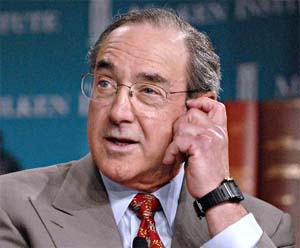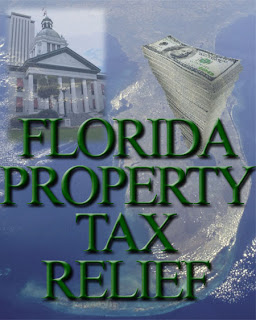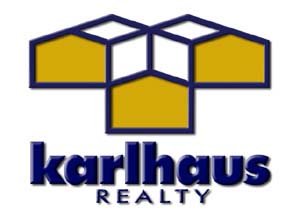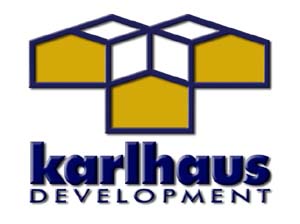While the demographics are different in Palm Beach County and the Treasure Coast — far more snowbirds and pre-retirees — the sales pace is also slow. One reason, Toll says, is that buyers are having a hard time selling their current properties to move up to a luxury home in Florida. The resolution of Florida's Property Tax crisis is a critical element in the recovery of the state's real estate market. The taxpayer's burden has reached untenable proportions and has prompted various citizen-led measures to cut Florida property taxes and rein in wasteful spending of municipalities and counties. Local public officials had engaged in a massive spending extravaganza during the bountiful years of ever rising property values instead of saving for a rainy day. The spending was more related to availability of funds for pet projects that actual demand for services. Bob Toll was recently interviewed by Florida Trend and provided his candid view of the Florida Real Estate Market for luxury homes. Toll is the chairman of Pennsylvania-based home builder Toll Brothers, a Fortune 500 company and the leading builder of luxury homes in the United States. Toll was named one of Barron’s Top 30 CEOs worldwide in 2005, when the publication recognized him as the “the undisputed king of high-end housing.”
Bob Toll was recently interviewed by Florida Trend and provided his candid view of the Florida Real Estate Market for luxury homes. Toll is the chairman of Pennsylvania-based home builder Toll Brothers, a Fortune 500 company and the leading builder of luxury homes in the United States. Toll was named one of Barron’s Top 30 CEOs worldwide in 2005, when the publication recognized him as the “the undisputed king of high-end housing.”
Toll says the luxury home market is still looking for a floor in most regions of the state, with Naples the only bright spot. “I think the market has already bottomed in Naples but not on the southeastern Gold Coast, Orlando or Jacksonville,” Toll says.
In the Orlando market, it takes a real bargain to interest buyers, he says. Many buyers are walking away from deposits — a trend that’s prompted the company to require additional funds as its new homes move toward completion.
“In the Naples-Fort Myers market, sales activity is definitely up for new homes on the market at reduced prices. That’s a definite contrast to late 2007, when you couldn’t give away a home regardless of price.”
The luxury Jacksonville market “is in the doldrums in a serious way,” largely because it’s a primary home market where potential buyers are sitting back until the national economy perks up.What’s killing housing today is a lack of consumer confidence
He does provide a hint of a successfully strategy that has consistently served him well through previous downturns: You move from an expansion mode to protecting your balance sheet immediately,
Then you hunker down, build up your cash, wait for the blood in the streets and take advantage of the opportunities.
The rainy day is here, however.
On the bright side, as Toll and many other successful real estate investors have shrewdly found out, is that the opportunities presented for the astute buyer during these times will not present themselves again for a long while. Foreign investors have also realized this. Currently they account for 18% of Florida buyers, a number that's growing daily.
Oh... About Jacksonville, Watch this video of what it has come to...
Wednesday, May 21, 2008
Toll's Take on Florida Real Estate
Sunday, May 18, 2008
Florida's Homestead Exemption, the Save our Homes Amendment of 1995 and how property taxes may change on a transfer of title.
The Save our Homes Amendment Property Tax Cap
The Florida Constitution was amended effective January 1, 1995, to limit annual increases in assessed value of property with Homestead Exemption to three percent or the change in the Consumer Price Index, whichever is lower (see CPI history). This amendment is generally known as the "Save our Homes Amendment". No assessment, though, shall exceed current fair market value. This limitation applies only to property assessed value, not property taxes. When a house is sold, the cap and exemption are removed at the end of the calendar year, and taxes are calculated on the full market value, also called the Just/Market Value. The property will fall under the limitations of the Save Our Homes Cap the second year of the new owner's Homestead Exemption. (Therefore, if a property owner applies for and receives Homestead Exemption for 2007, the Assessed Value will be capped in 2008). To determine taxable value, any exemptions are subtracted from the Assessed Value to reach a Taxable Value, which is then multiplied by the yearly Millage Rate set by the taxing authorities to reach the amount of tax due. Because a change in property ownership will effectively "reset" the Capped Value, it is important to be aware when purchasing a new home that is benefiting from the cap, it can be expected that property taxes will increase the next year because the assessed value must be adjusted to equal current market value. The increase due to the removal of the Cap may double or even triple taxes, depending on how long the previous owner had homestead exemption. The table below illustrates this. (For example, if the Millage rate for this fictitious property was 23.000 mills, then the previous owner would have paid $736, whereas one year later the new owner would pay $1,725 - a substantial increase.) How the Cap Works when a Property Sells: *(For this example, the previous owner's Assessed Value has been capped for several years and is therefore significantly lower than the current Just/Market Value.) **(For this example, Property is Capped at 3% , Cap Rate for 2008 - actual cap rate will vary yearly.) If additions or improvements are made to the property, the value of those improvements will be added to the roll regardless of the cap. For example, if a pool is added to a property, the value can increase no more than the cap rate, plus the value of the pool. If the Assessor corrects such items as size, number of bathroom fixtures, installation of heat and/or air conditioning, the value of those corrections will also be added to the roll above the cap. The fine print... The cap does not apply to properties that are not homesteaded or are rented. Multi-family properties may qualify based on percentage of use. For example, if you own a duplex, live in one half and rent the other half to a tenant, only 1/2 of your property value will be capped. The cap remains in effect upon the change of title due to divorce or death of a spouse as long as the remaining owner continues to live on the property as their permanent address. NOTICE On January 29, 2008, Florida citizens voted to pass Amendment 1. One of the provisions of Amendment 1 allows qualified property owners to "port" their Save Our Homes Cap when they move from their homesteaded property to another Florida property. Another provision increased the homestead exemption. For the November 2008 Florida Ballot there is yet another measure that will, if passed, enact an across the board property tax cut of about 25%. In September 1995, Florida's Governor and Cabinet approved a rule directing property appraisers to raise the assessed value of a qualifying homestead property by the maximum of 3% or the annual change in the Consumer Price Index, whichever is less, on all properties assessed at less than full market value whether or not that property's value increased during that calendar year. Will I Lose My Homestead Exemption if I add someone to my deed? Adding names to the ownership of your home normally does not change your $25,000 Homestead Exemption, BUT you may lose all or part of the protection your property receives from the Save Our Homes (SOH) assessment limitation or "cap". The SOH cap keeps the assessed value of your home from increasing more than 3% per year as long as you maintain your Homestead Exemption. A loss of protection from the SOH cap will increase the amount of property taxes you pay. Will I lose my Save Our Homes Cap if I add someone to my deed? Maybe, depending on how you own the property (the "tenancy"), and if the new owner files for Homestead Exemption on your property. "Tenancy" is the term used to describe the way property is owned, the relationship between the owners, and what happens to the property when an owner dies. The most common forms of tenancy are: tenancy by the entireties, joint tenants with right of survivorship, and tenants in common. If two or more people own property with a homestead exemption, the type of tenancy that appears on the deed can have an effect on the "Save Our Homes" provision, and ultimately the amount of taxes that are owed. If the new owner is your spouse,or someone who is legally or naturally dependent on you, he or she must apply for homestead exemption. Your current Save Our Homes cap will not be adjusted. Joint Tenants with Right of Survivorship: If the new owner is a joint tenant with right of survivorship, and he or she DOES NOT apply for Homestead Exemption, your SOH cap WILL NOT be adjusted. If the new owner is a joint tenant with right of survivorship and DOES apply for Homestead Exemption, your SOH cap WILL be adjusted to market value and start anew the following year. In future years, the SOH Cap will protect 100% of the property. One Important Note! If the new owner is living with you and intends to make the property his or her permanent residence, it may make more sense to apply for the new Homestead Exemption now rather than waiting until a later date. Your Homestead Exemption and SOH cap protects only you, and not the new owner. In the future if you no longer reside in this home, the new owner will have to apply at that time, and the property value and taxes will most certainly be much higher than they are now.Tenants in Common If the new owner is a tenant in common and DOES NOT apply for homestead exemption, your SOH cap WILL BE adjusted to protect only your proportionate or "percent" interest in the property. The "percent" interest of any owner who does not have homestead exemption will be assessed at market value each year. If the new owner DOES apply for Homestead Exemption, your SOH cap WILL BE adjusted to market value and start anew the following year. Can I "undo" or cancel a deed that is already recorded? If the wording of your current deed has consequences that you did not intend, you may want to consider a corrective deed. Please consult an attorney, title company or other real estate professional to help you prepare your corrective deed. The Property Appraiser's office cannot advise you, since there are many serious considerations that go beyond how homestead exemption is calculated, including income and estate tax consequences. It is recommended that you never attempt to change your deed without the help of a professional. Are there other ways of transferring my property for estate planning that will not disturb my Homestead Exemption or SOH Cap? Two methods of transferring your property will, in most cases, keep your Homestead Exemption and SOH intact: reserve a Life Estate for yourself or transfer your property to your trust. Please consult your attorney or estate planning professional before attempting either option. If you transfer your property to a trust, your attorney should know that three criteria are required in order for your Homestead Exemption and SOH cap to remain intact: PLEASE CONSULT YOUR ATTORNEY OR ESTATE PLANNING PROFESSIONAL. THIS INFORMATION IS PROVIDED ONLY TO HELP YOU UNDERSTAND HOMESTEAD EXEMPTION AND DOES NOT CONSTITUTE LEGAL ADVICE.Previous Owner's CAP 1st Year of New SOH: 2nd Year of SOH: Just/Value (Increases with Market): $150,000 $160,000 $170,000 Assessed (Capped) Value: $97,000* $160,000 $164,800** Less Exemptions: -$50,000 -$50,000 -$50,000 Taxable Value $47,000 $110,000 $114,800 The Recapture Rule
Save Our Homes Annual Increase
2008 4.1% 3.0% 2007 2.5% 2.5% 2006 3.4% 3.0% 2005 3.3% 3.0% 2004 1.9% 1.9% 2003 2.4% 2.4% 2002 1.6% 1.6% 2001 3.4% 3.0% 2000 2.7% 2.7% 1999 1.6% 1.6% 1998 1.7% 1.7% 1997 3.3% 3.0% 1996 2.5% 2.5% 1995 2.7% 2.7%
Tuesday, March 18, 2008
Florida will get some tax relief after all - 25 percent property tax cut on Florida’s November ballot
TALLAHASSEE, FL - The Florida Taxation and Budget Reform Commission voted to put a significant tax savings plan before Florida voters in November. By a 21-4 vote the independent panel decided to approve the proposal of a state constitutional amendment for an across-the-board property tax cut averaging 25 percent. The amendment would dwarf two other tax relief measures enacted over the past year by the Florida legislature. The previous efforts of the Legislature were widely considered to be ineffective and failed to address the underlying problem plaguing the State: irresponsible spending, widespread waste at local levels, and inequities in tax allocation. During the Commission’s first phase of its review of state taxation and spending policies, it reached the conclusion that: The Florida Constitution (Art. XI, § 6 Fla. Const.) and Florida Statutes (Fla. Stat. § 286.036) empower the Commission to make recommendations to the Legislature and to put constitutional issues directly before the people.
If the measure passes as expected, some Florida property owners could realize savings of over 33% of what they were paying before. The bulk of the savings are a result of eliminating property taxes that the legislature requires school districts to levy in order to qualify for state aid. At the ballot, the proposal will need 60% of voters’ approval.
The state will recoup some of the expected eight billion dollars in taxpayer relief by hiking the sales tax by one cent. Critics of the plan complained that the expected revenues as a result of the sales tax hike might not be realized due to the severe recession we are currently suffering. The recession and financial market turmoil is already causing people to reduce spending. House Speaker and taxpayer rights supporter, Marco Rubio disagreed, saying that if people have more money in their pocket, as this plan will certainly allow, they will go to the stores to spend it. The specific language of the plan will still need to be worked out, but the basic intent should remain unmodified.
Last year, The Legislature had ordered local governments to roll back property taxes, but many avoided the cuts by taking advantage of a loophole that let them override the requirement through votes of more than a simple majority. Others passed new fees to make up at least some of the lost property taxes. In the end, the irresponsible spending continued at the local levels. The new plan will certainly help curtail those abuses.
Established by Florida voters in 1988, The Florida Taxation and Budget Reform Commission was formed by constitutional amendment. Its mission was stated as: The commission shall examine the state budgetary process, the revenue needs and expenditure processes of the state, the appropriateness of the tax structure of the state, and governmental productivity and efficiency...
The public has lost confidence in the state’s ability to spend money wisely. The state must reform itself before it can ask more of its citizens.
Read more here.
Video News of the Tax Cut Proposal:
Tuesday, February 12, 2008
FAQs on Florida's Property Tax Portability Amendment
- What is the Property Tax Portability Amendment?
- What is the "Save our Homes" Benefit"?
- When will the changes from Amendment 1 show up on tax bills?
- How much is the portability benefit worth?
- How does a person apply for portability?
- Who's eligible for portability this year?
- Who's eligible for portability after that?
- I don’t plan to move. What happens to the 3 percent cap on property tax assessments I got every year under Save Our Homes?
- Is there an application for the additional homestead exemption?
- Do business owners and mobile-home owners with tangible personal property have to apply for the exemption?
- When does the 10 percent cap on annual assessment increases for most non-homesteaded properties go into effect?
- Does the Amendment correct or alleviate the Property Tax Crisis in Florida?
What is the Property Tax Portability Amendment?
On January 29, 2008. the citizens of Florida voted for the implementation of the 2007 Special Session D legislation (increases to the homestead exemption, homestead portability, tangible personal property tax exemption, and assessment caps on non-homestead property). In short, the "Property Tax Portability Amendment". The amendment provides in part for homeowners to transfer some or all of their savings in property taxes as a result of their homestead when they sell their home and purchase another home in Florida. Previously, the assessed value of the new home would be readjusted as a result of the new purchase to reflect the new "fair value". For more information, see the Department of Revenue's FAQ'S
What is the "Save our Homes" Benefit?
The "Save Our Homes" benefit is the difference between the assessed value and market value of a homestead property due to the annual limit on increases in assessed value. Portability means that, from now on, you can transfer some or all of your old home's "Save Our Homes" benefit to your new home.
When will the changes from Amendment 1 show up on tax bills?
Portability first becomes available for homeowners who had a 2007 homestead exemption on their old home and established a new homestead by January 1, 2008. If you moved into a new home by January 1, 2008, you have through March 1, 2008, to apply to your property appraiser for your new homestead exemption and for the transfer of the “Save Our Homes” benefit to your new homestead for 2008. If you have already applied for a homestead exemption on your new home, you must complete a separate application by March 1, 2008, to transfer the "Save Our Homes" benefit to your new homestead.
How much is the portability benefit worth?
A homesteaded property owner can transfer up to $500,000 of portability benefit to a new homestead. A person moving to a more expensive home transfers the dollar amount. A person moving to a less expensive home transfers the percentage value.
How does a person apply for portability?
The homesteaded property owner should turn in a completed application to the office of the property appraiser in the county where the new homestead is located. The application from the Department of Revenue.
Who's eligible for portability this year?
A person who establishes a new Florida homestead for 2008 and filed to give up the previous homestead sometime after Jan. 1, 2007. In other words, a person who relocated from a homestead last year and is claiming a new homestead for 2008 is eligible. The deadline for 2008 homestead and portability applications is March 1. The portability benefit would show up on the 2008 tax bill.
Who's eligible for portability after that?
Any Florida homesteaded property owner who establishes a new homestead for 2009 or any subsequent year—as long as the person had another valid homestead within two years of establishing the new one.
I don’t plan to move. What happens to the 3 percent cap on property tax assessments I got every year under Save Our Homes?
You’re still protected. Save Our Homes doesn’t go away.
Is there an application for the additional homestead exemption?
No. The additional exemption will be granted automatically to anyone qualifying for a base $25,000 homestead exemption. It applies only if a property's assessed value exceeds $50,000.
How much is the additional exemption?
The exemption is $25,000, but it does not apply to property taxes assessed for local schools. In other words, no additional exemption will be applied to a property's assessed value for the purposes of levying school taxes.
Do business owners and mobile-home owners with tangible personal property have to apply for the exemption?
To receive the exemption, they must file their 2008 returns. If the value of tangible personal property is under $25,000, they will not have to file again the following year.
When does the 10 percent cap on annual assessment increases for most non-homesteaded properties go into effect?
It goes into effect in 2009. There will also be an application. Keep checking the Department of Revenue web site for details.
Does the Amendment correct or alleviate the Property Tax Crisis in Florida?
Absolutely Not!. While the amendment provides a little bit of immediate relief (about $200 savings for the average homesteaded home), and allows the portability of savings, it does not resolve the inequalities of the system. Further, and most importantly, it fails to address the real problem that prompted this crisis: Runaway spending by Counties and Municipalities. The amendment does nothing to prevent or correct the fiscal profligacy and financial waste inflicted on the taxpayers by many public officials. See my Florida's Perfect Storm post. This amendment merely delays the inevitable "time of reckoning" decision.
Disclaimer
© 2008, Carlos E. Bravo - All Rights Reserved









 Entrepreneur, former Fortune 500 senior executive, semi-retired at the age of 39 after founding and growing several businesses in High Technology, Management Consulting and Manufacturing.
Entrepreneur, former Fortune 500 senior executive, semi-retired at the age of 39 after founding and growing several businesses in High Technology, Management Consulting and Manufacturing.